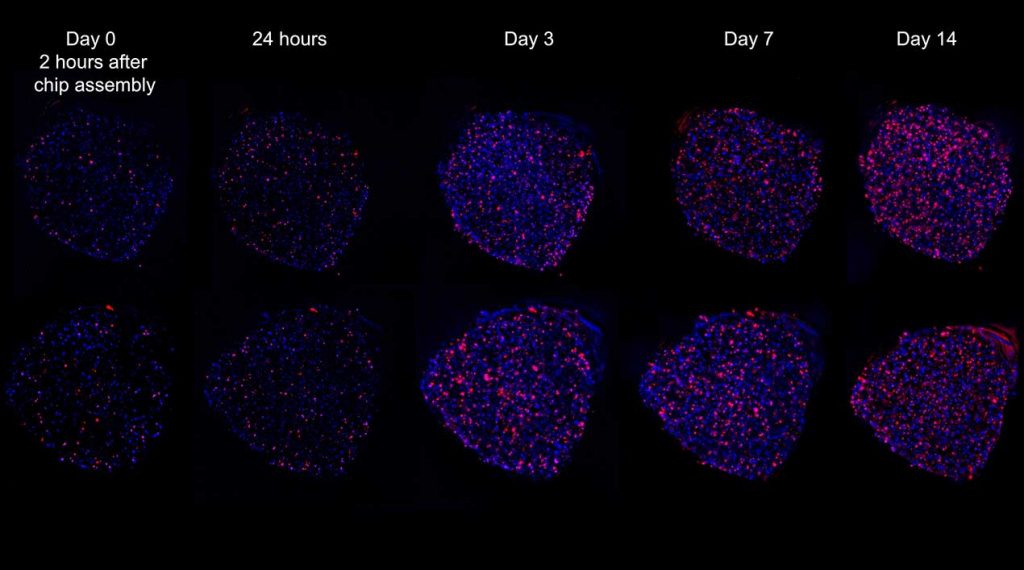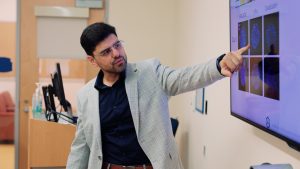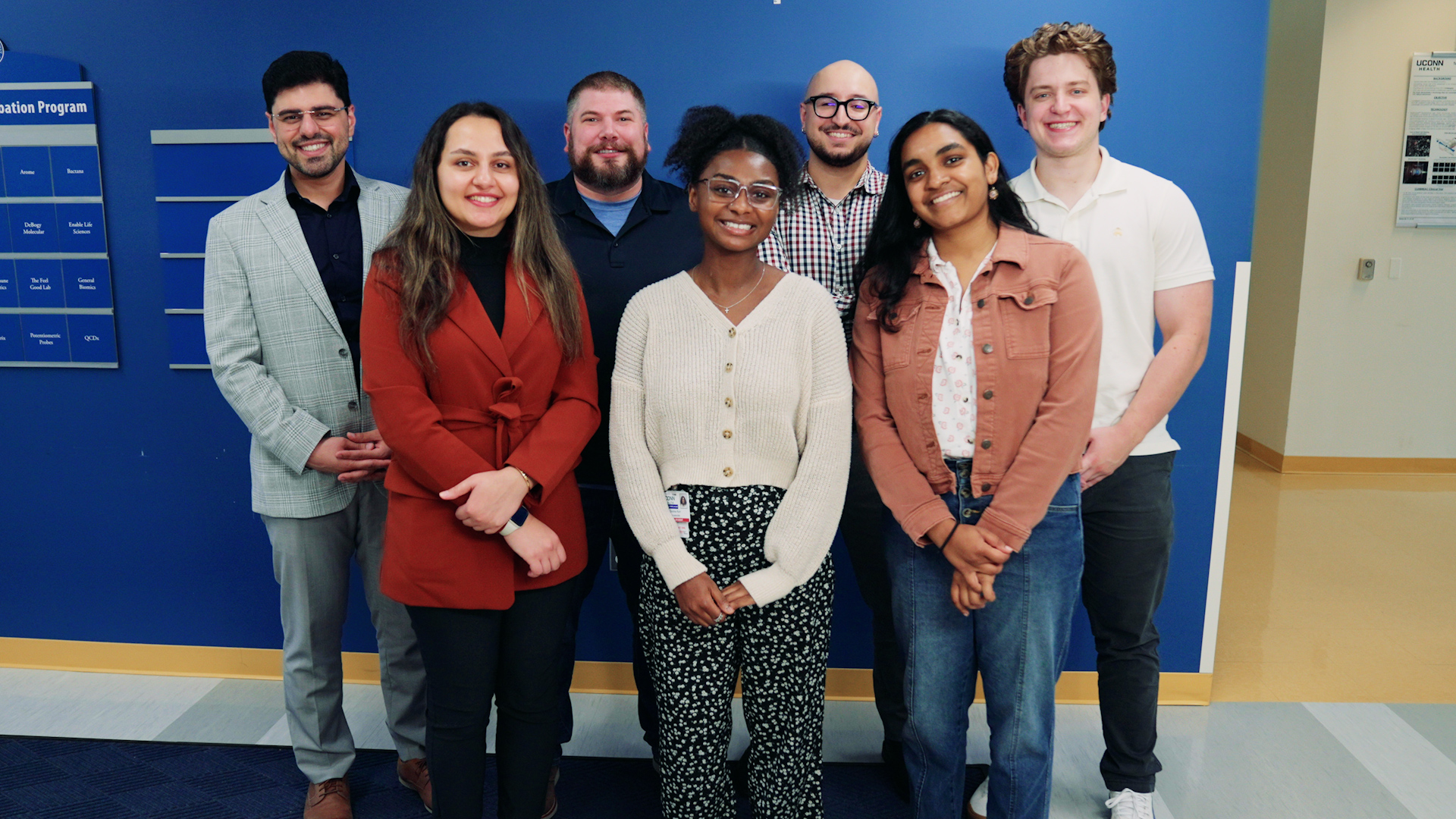Summary:
Encapsulate, founded by UConn alumni, uses biochip technology to replicate cancer tumors outside the body for personalized chemotherapy testing
Closed an oversubscribed $1.8 million seed round and won second place at the Entrepreneurship World Cup out of 16,000+ applicants
Received $1.25 million NSF SBIR grant and joined CancerX and MedTech/BioTools Innovator accelerators for scaling and commercialization
Launched experiments on the International Space Station to study 3D tumor growth in microgravity, supported by $4.63 million in NASA grants
Conducting multi-site clinical studies for pancreatic and colorectal cancers at top cancer centers to validate predictive accuracy
Founders actively give back to UConn through teaching, mentorship, and employing student interns to foster entrepreneurship
When Armin Rad and Leila Daneshmandi, both UConn alumni, founded Encapsulate in 2019, they embarked on a journey that would take their MedTech startup to global heights—and beyond.
Revolutionizing Cancer Care with Biochip Technology
Encapsulate’s proprietary biochip technology replicates cancer tumors outside the body, allowing clinicians to test various chemotherapy treatments on a patient’s cancer cells without subjecting the patient to endless trials. Initially focused on gastrointestinal cancers, the company has completed two pilot clinical studies and is expanding to other cancer types.
Armin Rad explains, "Too much of cancer therapy still follows a ‘treat-and-wait’ playbook; reacting to the disease and staying a step behind. We’re shifting to a more rigorous, predictive, and comprehensive paradigm. Encapsulate’s approach is proactive: predict and lead. Our platform allows us to stay ahead, rather than chasing the disease."
If successful, this technology could revolutionize cancer treatment by providing precise and personalized tools for doctors and patients.
From Startup to Seed Rounds and Global Recognition
In November 2024, Encapsulate closed an oversubscribed seed round, raising $1.8 million from venture capital firms including Connecticut Innovations, Blackwood Healthcare Breakthroughs Capital, and Ambit Health Ventures.
The company started 2025 by placing second at the Entrepreneurship World Cup Global Finals in Saudi Arabia, competing against over 16,000 applicants from 200 countries. Additionally, Encapsulate joined prestigious accelerator programs: CancerX and MedTech/BioTools Innovator, which provide support in commercialization, scaling, and connections to healthcare systems and investors.
Leila Daneshmandi notes, "We’re both first-time founders. We’ve learned to surround ourselves with strong advisors and partners, and that collective expertise has been important in helping us grow Encapsulate."
Further funding came from the National Science Foundation (NSF), which awarded Encapsulate a $1.25 million Small Business Innovation Research (SBIR) phase II grant to advance their automated tumor-on-a-chip platform for personalized chemotherapy selection in pancreatic and colorectal cancers.
Shooting for the Stars: Cancer Research in Space
Encapsulate is pushing boundaries by launching its technology to the International Space Station (ISS). In March and November 2024, patient samples orbited Earth in a portable, autonomous device called CubeLab, developed in partnership with Space Tango.
By studying tumors in space, each biochip provides insights that clinicians simply wouldn’t have through traditional methods.
Microgravity conditions on the ISS allow tumors to form 3D configurations similar to how they behave in the human body, unlike the flat, 2D growth on Earth. This enables researchers to track tumor cell behavior over time, crucial for evaluating metastasis and therapy resistance.
Experiments have shown intriguing results, and Encapsulate received a $3.63 million NASA InSPA Phase 1 grant and a $1 million NASA SBIR Phase I/II award to develop a next-generation Metastasis-on-a-Chip platform using microgravity.
 This microscopic image captures how microgravity allows tumor cells to self-assemble into clusters, mimicking their behavior in the human body. (Courtesy of Encapsulate)
This microscopic image captures how microgravity allows tumor cells to self-assemble into clusters, mimicking their behavior in the human body. (Courtesy of Encapsulate)
Expanding Clinical Studies and Partnerships
Back on Earth, Encapsulate is conducting a multi-site pancreatic and colorectal cancer study at UConn Health, Memorial Sloan Kettering Cancer Center (MSK) in New York City, and Moffitt Cancer Center in Tampa, Florida. These studies will compare real-world patient outcomes against Encapsulate’s prognoses to hone the technology’s predictive capabilities.
Dr. Joel Levine, Chief of Creativity at Encapsulate and founding director of UConn Health’s Colon Cancer Prevention Program, facilitated clinical studies at UConn Health. He states, "Encapsulate has developed a platform that serves a range of important needs. First, it has proven, to date, as highly accurate in predicting clinical response to treatment. As important is its design and use pattern — access and cost are important considerations, and this chip system will be able to be ordered by clinical oncologists as a ‘routine’ test conducted in their own hospital labs. This will speed time for decisions and decrease costs to patients."
 Encapsulate CEO and Co-founder Armin Rad presents on Encapsulate’s signature technology. (Ethan Giorgetti/UConn Health)
Encapsulate CEO and Co-founder Armin Rad presents on Encapsulate’s signature technology. (Ethan Giorgetti/UConn Health)
The founders aim to prepare their first product for clinical use within the next two to three years, while continuing studies on the ground, in space, and across multiple clinical sites.
Giving Back to the UConn Community
Despite their global success, Rad and Daneshmandi remain connected to UConn. Daneshmandi is an assistant professor-in-residence of Innovation and Entrepreneurship in UConn’s College of Engineering, Director of the Matthew and Margarethe Mashikian Innovation and Entrepreneurship Hub, and Co-Director of the Nursing and Engineering Innovation Center.
"I teach courses and develop programs based on what I’ve learned from my lived experience, and I think that resonates with students," says Daneshmandi. "I share a lot of our personal experiences as well. I see my role mostly as empowering STEM students to step out of their shell and see entrepreneurship as a natural extension of their STEM training. I want them to develop an entrepreneurial mindset and realize they can take their ideas beyond the lab and translate them into real-world impact."
Rad is an adjunct faculty member at the UConn School of Medicine, developing courses on clinical entrepreneurship. Encapsulate also employs 4-5 UConn student interns, providing valuable research and entrepreneurial experience.
Rad reflects, "We owe a great deal to the mentors we had at UConn. They challenged us to stretch, to take risks, and to grow. As our relationship has evolved, it’s been a privilege to give back to the community that launched us."





Comments